Original Title: La polizia incrimina la legge assolve
Year: 1973
Director: Enzo G. Castellari
Writer: Maurizio Amati (story), Tito Carpi (screenplay, story), Enzo G. Castellari (writer), Gianfranco Clerici (writer), Vincenzo Mannino (writer), Leonardo Martín (writer)
IMDB: http://www.imdb.com/title/tt0070552/
Genre: Polizia
imdb synopsis:
An Italian police inspector matches wits with a powerful European drug ring. As he comes closer to the top of the underworld organization, his odds of survival decrease.
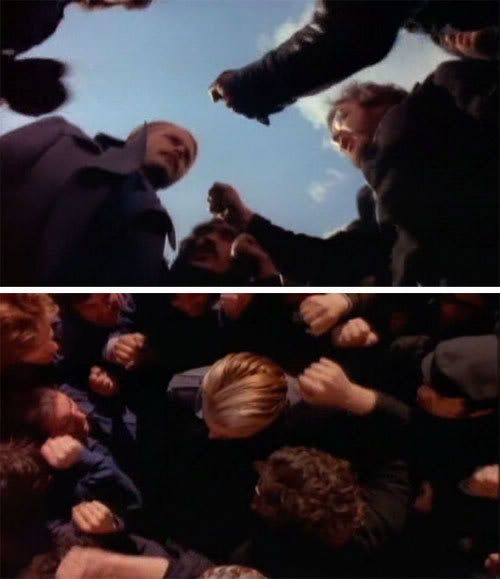 Castellari and Franco Nero have come together to make a real gem here in this film. It starts off action packed, but unlike other polizias I have seen, this one has some really great character roles and and interesting story around all the action.
Castellari and Franco Nero have come together to make a real gem here in this film. It starts off action packed, but unlike other polizias I have seen, this one has some really great character roles and and interesting story around all the action.First the characters: Nero's Belli is similar to the Betti character of Violent Naples and Violent Rome that I have reviewed recently, although with much more depth I thought. He is a hothead, but is cooler under pressure. His heated scenes with the Commissioner are very well acted, and I really liked the interactions with him and his daughter and his girlfriend. These down times feel natural and add dimension to the Belli character without getting overly sappy or awkward as they are sometimes prone to do. While it can be fun, Nero proves here you don't have to be a carboard cutout of a tough-guy to truly pull off a tough guy.
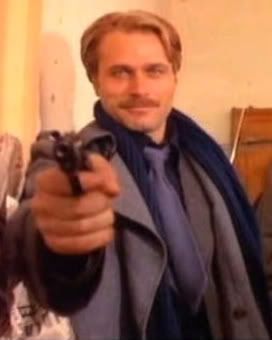
He is over the top at times (ok, ok, most of the time), but I feel like it still worked. I guess I just got lost in those blue eyes! Ahhhh..... Belli has some funny, smartass lines in there ("You have shit on your face"), and has a great look with his scarf and wide tie.
The commissioner, played by James Whitmore, was also a strong character I thought. He had a great look... Whitmore's expressive, pensive bushy eyebrows were almost a character in themselves. Like I said, his interaction with Belli are great. There is a standout scene in particular with the two of them speaking (yelling) with one another on a high look over the city. This adds an interesting little facet to their relationship beyond a standard boss-employee relationship. Belli voices his opinions, and we get the idea that the commissioner respects them, even going as far as giving Belli an arena to do so, away from other law enforcement officials at the station.
The commissioner, played by James Whitmore, was also a strong character I thought. He had a great look... Whitmore's expressive, pensive bushy eyebrows were almost a character in themselves. Like I said, his interaction with Belli are great. There is a standout scene in particular with the two of them speaking (yelling) with one another on a high look over the city. This adds an interesting little facet to their relationship beyond a standard boss-employee relationship. Belli voices his opinions, and we get the idea that the commissioner respects them, even going as far as giving Belli an arena to do so, away from other law enforcement officials at the station.
"In this business, there are no heroes. No heroes, no crusaders, just a sick society!"

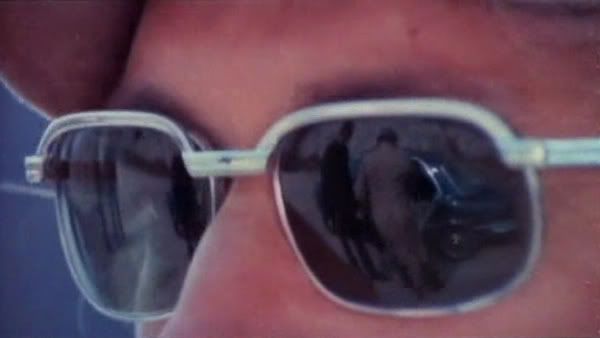 As for Castellari's direction: He was spot on here. There are many great scenes of action and just nicely framed images in general. There are many little things on top of the character interactions that just gave the film a real sense of artistic style while still maintaining the grittiness and fast pace we want and expect from a film of this genre.
As for Castellari's direction: He was spot on here. There are many great scenes of action and just nicely framed images in general. There are many little things on top of the character interactions that just gave the film a real sense of artistic style while still maintaining the grittiness and fast pace we want and expect from a film of this genre. Castellari uses some nice scenes of slow-motion as he seems prone to do. Like Inglorious Bastards with the German potato masher crashing through a window, there is a spectacular execution scene with machine gun fire through a glass door.
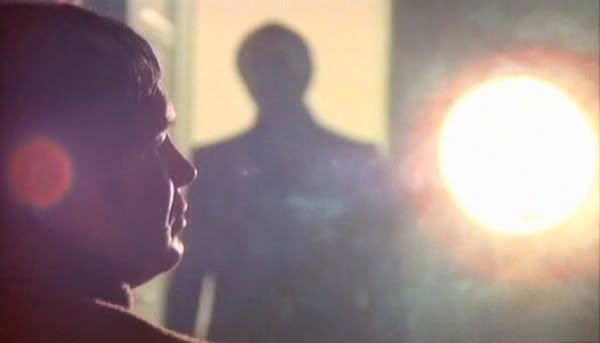
There are scenes of flashback woven in and out of the present time as we (and the character) are reminded of certain things. And there are just nicely framed and shot images that just ooze cool, like a reflection in a man's sunglasses, or interesting angles that may not be all that necessary, but just add style.
There is quite a bit of handheld camera work, particularly when panning around characters who are speaking, even some scenes shot from a first-person perspective, all which pull the viewer into the story more I think.
The story stays strong throughout; it doesn't get bogged down with over-analyzation or on the other hand stay too light and just focus on the action. There is a great balance and pace. A problem with lots of films I have seen in the genre is the momentum grinding to a halt when the characters break out of their one-dimension and get serious, show affection, etc. I really did not get that from this film. Nero is great in the quiet times as well as the frenetic times.
The story stays strong throughout; it doesn't get bogged down with over-analyzation or on the other hand stay too light and just focus on the action. There is a great balance and pace. A problem with lots of films I have seen in the genre is the momentum grinding to a halt when the characters break out of their one-dimension and get serious, show affection, etc. I really did not get that from this film. Nero is great in the quiet times as well as the frenetic times.
From what I have read, this film started the polizia/eurocrime boom of the mid-70s, and I can definitely see why. I'm not sure if that is true as it is not the first of it's kind, but it surely served as a turning point.


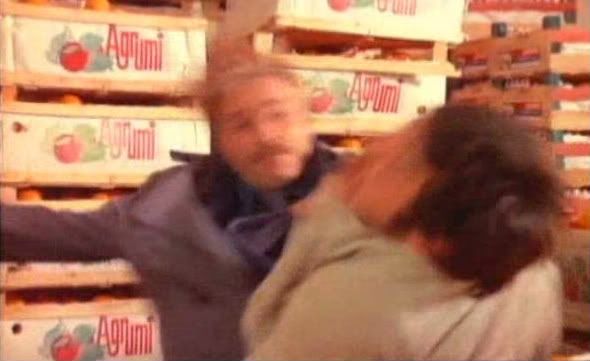
No comments:
Post a Comment